Are your eating habits as healthy as you think they are? Are you a thoughtful eater…or are you on a diet and taking it too far?
You may be wondering: what is chronic dieting, and are you actually taking care of your health or hurting it?
Messages about health, nutrition, weight, and dieting are really confusing, especially when so many of them contradict one another…even the ones that can be coming from sources you’re supposed to trust, like your doctors. Who’s right?!
And what is best for YOU?
The truth is: dieting isn’t the end-all, be-all health habit we think it is. Chronic dieting is incredibly common and causes real and measurable harm.
First off…what is chronic dieting?
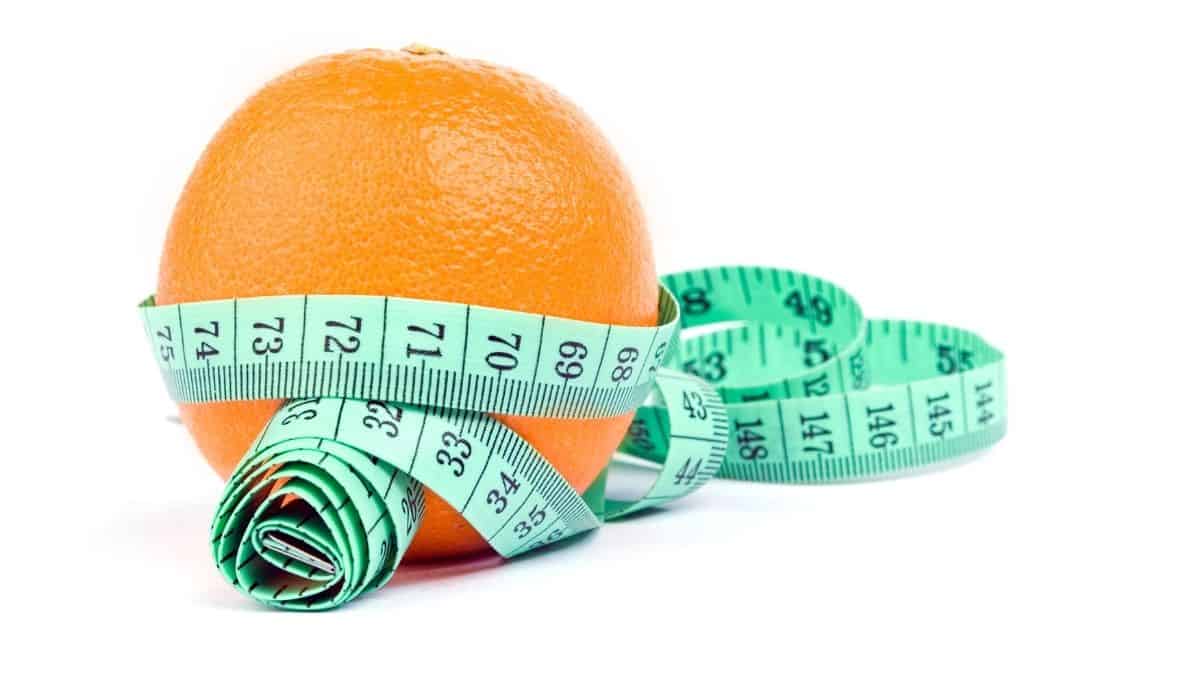
What is chronic dieting?
Chronic dieting is the practice of following fad diets to the detriment of your physical and psychological health. Specifically, the American Journal of Clinical Nutrition defines a person with Chronic Dieting Syndrome as meeting the following three criteria:
- Someone who has consistent concerns about their body shape and/or weight.
- Has had food restrictions for more than two years.
- Does not have weight loss “success,” or has weight loss and regain.
Here is something that might surprise you: many people who follow food rules, strict eating, and exercise plans are on the spectrum of disordered eating.
Say what?
Disordered eating is on a spectrum and chronic dieting can be on the path towards anorexia and bulimia. “Health” is a socially acceptable cover for the chronic dieting mentality that is actually causing harm.
Diets are being followed by so many of us, despite there being real harm.
How common are diets?
Diets are extremely common, not just in women but in children and men, too.
Here are a few bone-chilling facts about dieting:
- At any given moment, 50% of women in the US are on a diet
- Women are more likely to be on a diet than men, but both groups diet often
- 80% of people who’ve lost weight are not able to keep it off for a year or longer
- 44% of people in North America are trying to lose weight right now
- 41% to 66% of teenage girls and 20% to 31% of teenage boys have attempted weight loss at some time in the past
So – we know now just how common diets are. They’re everywhere! Are they doing any good?
Are diets good for you?
No. Diets are not good for you.
And this boggles most people’s minds because the mythical benefits of dieting have been so woven throughout our society that it is surprising to read something different.
But the truth is: chronic dieting sets you up for many challenges – let’s look at those next.

What are the effects of long-term dieting?
What are the effects of long-term dieting? They’re not pretty, Gorgeous.
The amazing thing is that diets also don’t work. Despite being a billion-dollar industry, diets promote short-term “solutions” that don’t last. They keep you caught in a web of false promises and prey on the insecurities that they’ve planted…you’ll be happier at a different size…this time it will be different…it’s all bullshit friend.
Diets promote “successful” weight loss…but when you read the fine print, the studies are short-term and the weight loss doesn’t last. In fact, those who diet are associated with having higher body fatness than non-dieters. Can you believe it?
The risk of chronic diets causing harm is real. The risks are far and wide: let me count the ways.
- Chronic dieters have higher levels of ghrelin, the hunger hormone.
- The very act of starting a diet puts teen girls at greater risk of disordered eating.
- Diets do not provide you with your minimum levels of vitamins, minerals, and other nutrients.
- Dieting can put you in a state of chronic stress.
- Chronic dieters have lower lean body mass and greater abdominal fatness.
Have you heard enough? Are you ready to explore what wonderful world lies beyond chronic diets? Let’s talk about letting that diet mentality go so that you can find your food freedom.
How do I stop a dieting mentality?
I’m so very glad you asked. Stopping the diet mentality makes room for real food freedom, body positivity, and actual health. Bravo!
Here are some of the first steps that I’d suggest for letting that dieting mentality go. Be gentle and patient with yourself as you explore these options. If you’ve been a chronic dieter, it will take time, practice, and even guidance to reshape your thinking about food, eating, and your body.
Trust me: the journey and hard work are worth it!
Learn your own food rules
After a well-deserved pat on the back for wanting to stop the dieting mentality, the next step is to learn what your own food rules are. Knowing your own food rules gives you insight into what you need to work through and – great news – if you know what rules you need to work through, that means you also know what rules you need to let go of.
Here is my post about How To Identify & Break Food Rules. Check that out and circle back here! (And if you think “I don’t have food rules!” think again!)
Next: take a look around at your environment – is it contributing to your chronic dieting?
Switch up your surroundings
Next: consider your own surroundings. What aspects of your life promote the dieting mentality? Do you follow diet culture promoting people on social media? Do you weigh yourself often? Get rid of those tools and connections that are keeping you tied to diet culture: When To Weigh Yourself: Don’t.
New to the term diet culture? Here is what we mean by that term: What is Diet Culture (And Should I Kick it to the Curb?)
We tend to “buy,” whether actually with money or accept as truth, the things in our surroundings that we see most often. At the grocery store, we are more likely to buy the things that are at our own eye level (that’s why kids’ cereals are often lower in the grocery store: to be at their eye level).
Make consistent and deliberate choices about what you allow into your physical environment, your social media feed, and your mental space.
Let’s clear the way for more satisfaction!

Cultivate your own satisfaction
We live in a society that would rather us be nice, accommodating, and focused on everyone else’s needs before our own, especially for women.
And especially around food – ugh!
One important part of letting diet culture go is to focus on – and prioritize – your own satisfaction.
At the most basic, this means satisfying hunger and fullness levels. Once you’re more comfortable with that, satisfaction also means eating the foods you enjoy and making your body feel good.
One of the foods that I didn’t allow myself to eat during my dark days of disordered eating was ice cream. I’d shame myself for even wanting it, over-exercise and under-eat, and then feel completely out of control.
Next stop? A binge on ice cream left me feeling physically and mentally awful. I hated it…and honestly? I hated myself, too.
These days, I keep ice cream on hand, I even enjoy making it from scratch! I have full permission to enjoy it wherever it sounds good and so the urge to binge is finally gone.
I’d love that exact same freedom for you, too. At the end of this post, I’ll share my favorite tool to start tuning into your own body – keep reading, Gorgeous!
Identify your own benefits
I would also suggest considering what aspects of dieting offer you benefits?
Does dieting offer you a sense of control when other aspects of your life feel out of control?
Would therapy or other emotional self-care better serve you than dieting?
Is dieting how you bond with friends and family? Would time with different people or trying a new hobby better foster your sense of community and connection?
Although we can rationally look through the science and identify that diets cause harm, for many of us, there are also benefits keeping you entangled in them.
Seeing what “positives” are keeping you tied to diets helps you to see what needs to change. How can you get those perceived benefits in a way that serves you better?
Intuitive Eating is my recommended path forward.
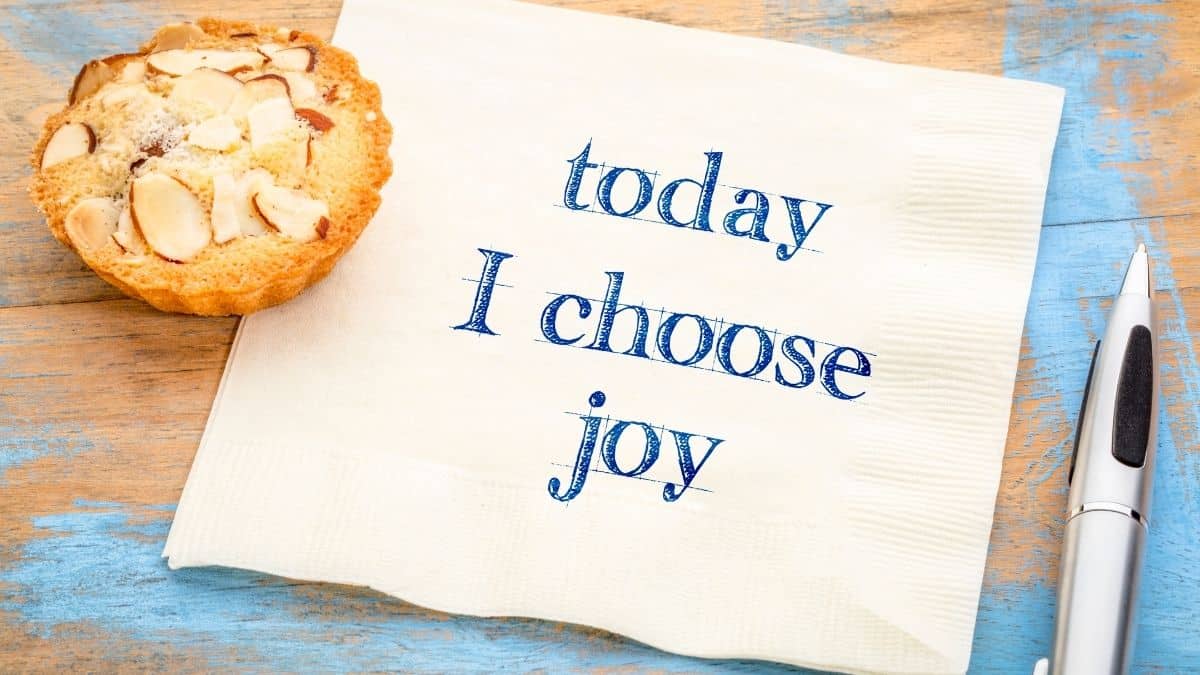
Can Intuitive Eating help?
First off: what is Intuitive Eating? Intuitive Eating is a health movement that is completely different from dieting. With Intuitive Eating, you eat when you’re hungry, stop when you’re full, and are not burdened by food rules or other dieting behavior. All foods fit.
While that simple explanation can lead to myths, such as “Intuitive Eating is all about eating a zillion doughnuts”, it is important to also remember that nutrition still matters and that Intuitive Eating also includes eating in a way that feels good both mentally and physically.
Eating a doughnut or two should not come with a grande cuppa guilt.
At the same time, eating a dozen doughnuts at once is probably not going to feel all that great physically. Intuitive Eating is that balanced middle ground in between; no guilt, but also no binging.
Curious? Read more, right here: What Is Intuitive Eating? A Beginner’s Guide.
Intuitive Eating helps you to lead a happier, more satisfying life in a number of ways, starting with your relationship with your own body. Women with greater Intuitive Eating skills have better relationships and appreciation for their bodies.
In fact: remember how we talked about chronic dieting being on the spectrum towards more severe disordered eating? Intuitive Eating can be the path towards healing and recovery.
As women are recovering from a chronic dieting mentality and exploring Intuitive Eating, there is one question that is at the tippy-top of the list…what about weight gain?
Will I gain weight?
This is such a common question and I’m happy to hear you out and answer without judgment.
With so many mythical benefits tied to weight loss, it is no wonder or surprise that many women seek weight loss, even after learning about the harm of chronic dieting.
The fact of the matter is that even though I’m an Intuitive Eating dietitian, I don’t know the best weight for your body.
But you know who does? Your body.
Your body knows the best weight for you; one that is easy to maintain and feels good mentally and physically. This weight is something called your “set point” weight, and I talk more about that here: Set Point Weight Theory: What It Is & How To Find It.
But the main idea with set point is that there are no accurate predictors for the “best” weight for individuals because so. very. many. factors. influence where your unique weight should be, from genetics, lifestyle, trauma, gut health, your sleep, other health behaviors, and more.
On your Intuitive Eating journey, you may experience weight loss, weight gain, or no change in your weight at all. I can’t predict your results: anything can happen. But I can help you get to that set point weight.
What I do know is that without the burden of chronic dieting, you’ll be happier, more in tune with your body, and more at peace.
If you’d like to explore the weight question a bit more, I would recommend this post: Is Wanting Weight Loss AND Intuitive Eating Possible?
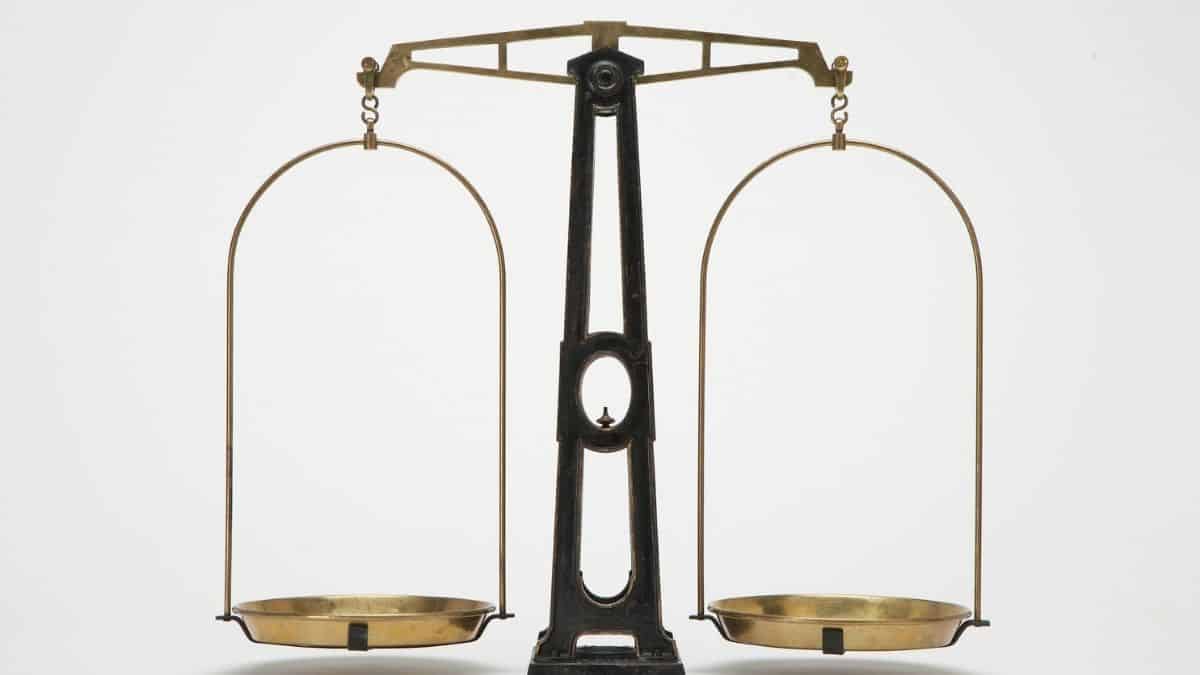
Key Takeaways: what is chronic dieting?
You know what chronic dieting really does? It thwarts your relationship with your body, your hunger, and your eating.
Chronic dieting at its root is the attempt to smother your body’s normal and natural hunger cues. Your body says that you’re ready for fuel and diet culture is offering you tools and tricks to say no.
Healing your relationship with food and eating is a journey that begins with learning to tune back in and build trust. If you’ve ever had a friend or family member lie to you, you know full well that this takes practice and consistency to rebuild.
The same is true for hunger and your body. Your next step, Gorgeous? Snag your free non-diet download: your guide to listening to your body. Why? Because listening to your body isn’t a switch you can just turn on and “do.” This guide will give you an exact learning process to follow. Through the exercises in this guide, you’ll be able to adjust your food choices to allow you to feel better than ever- physically and mentally!
I can’t wait for you to build more trust with yourself, your body, and your hunger. You’re going to love it!
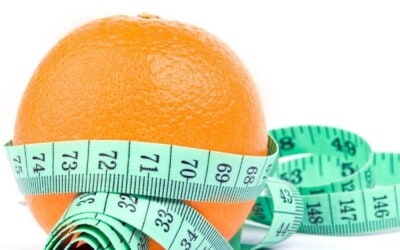

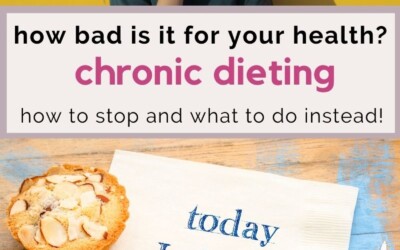
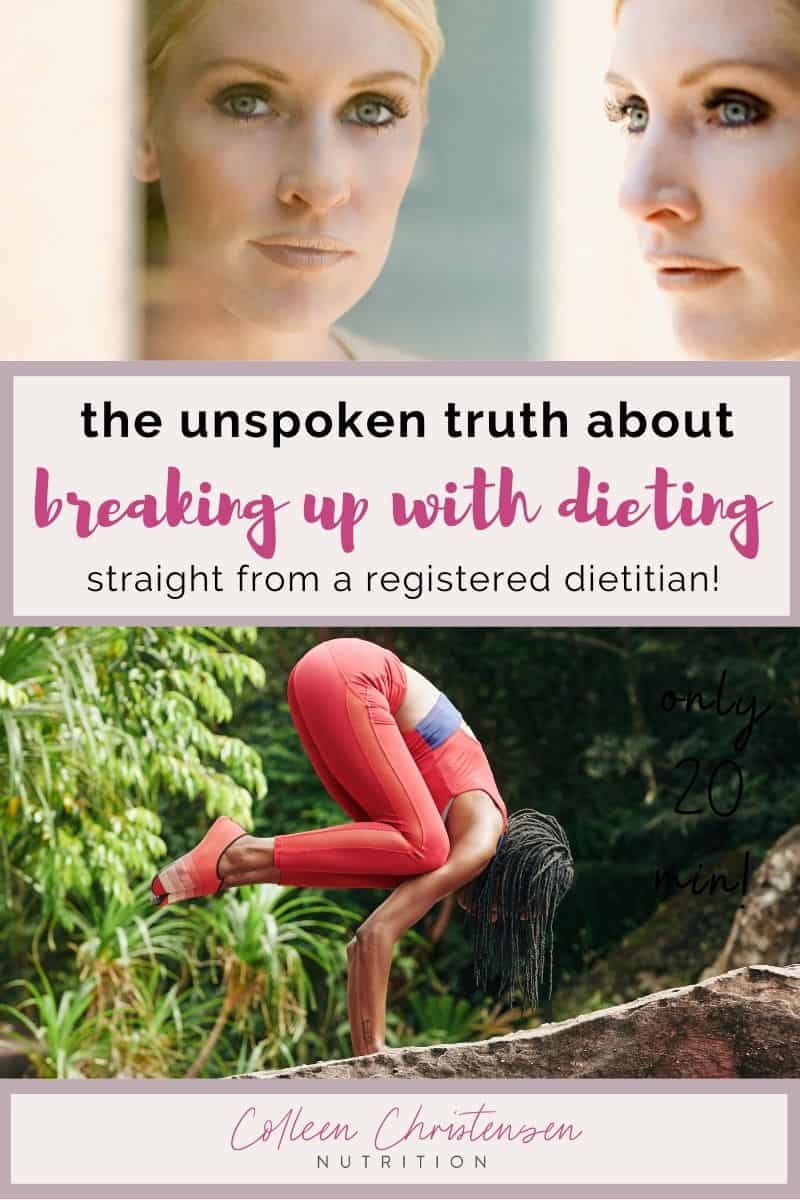
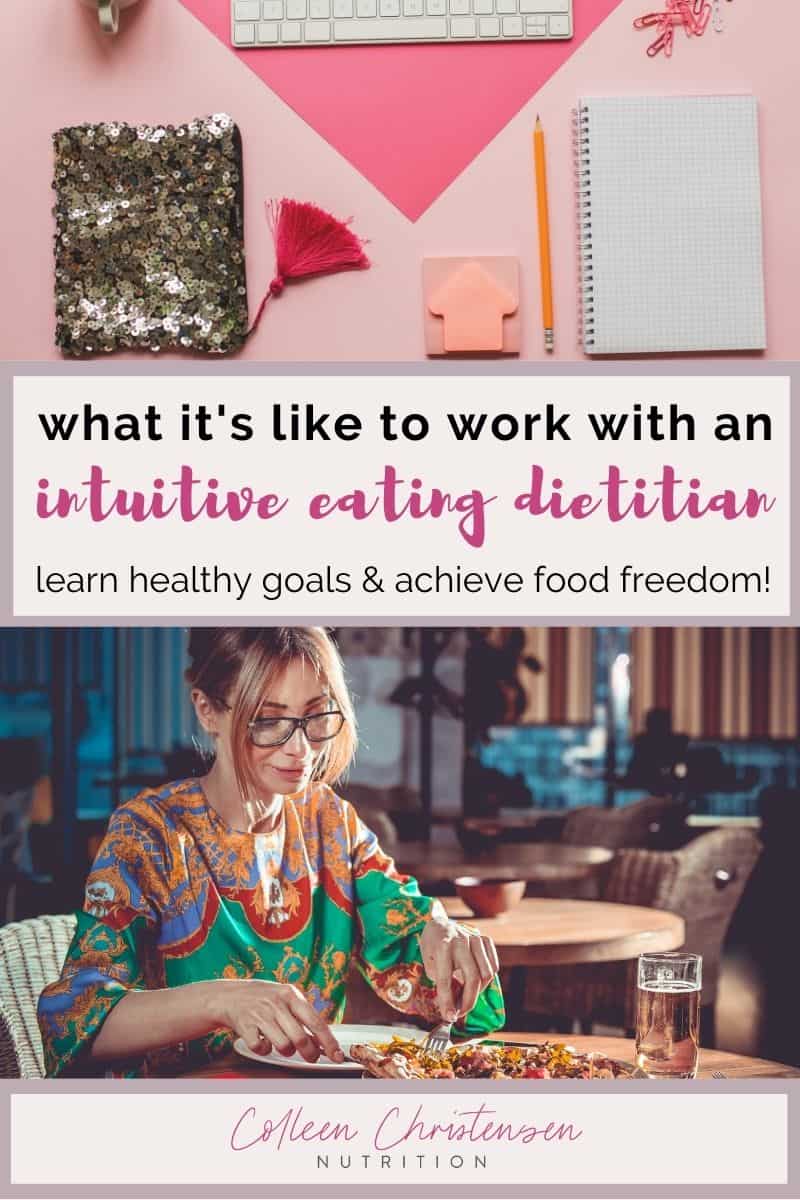
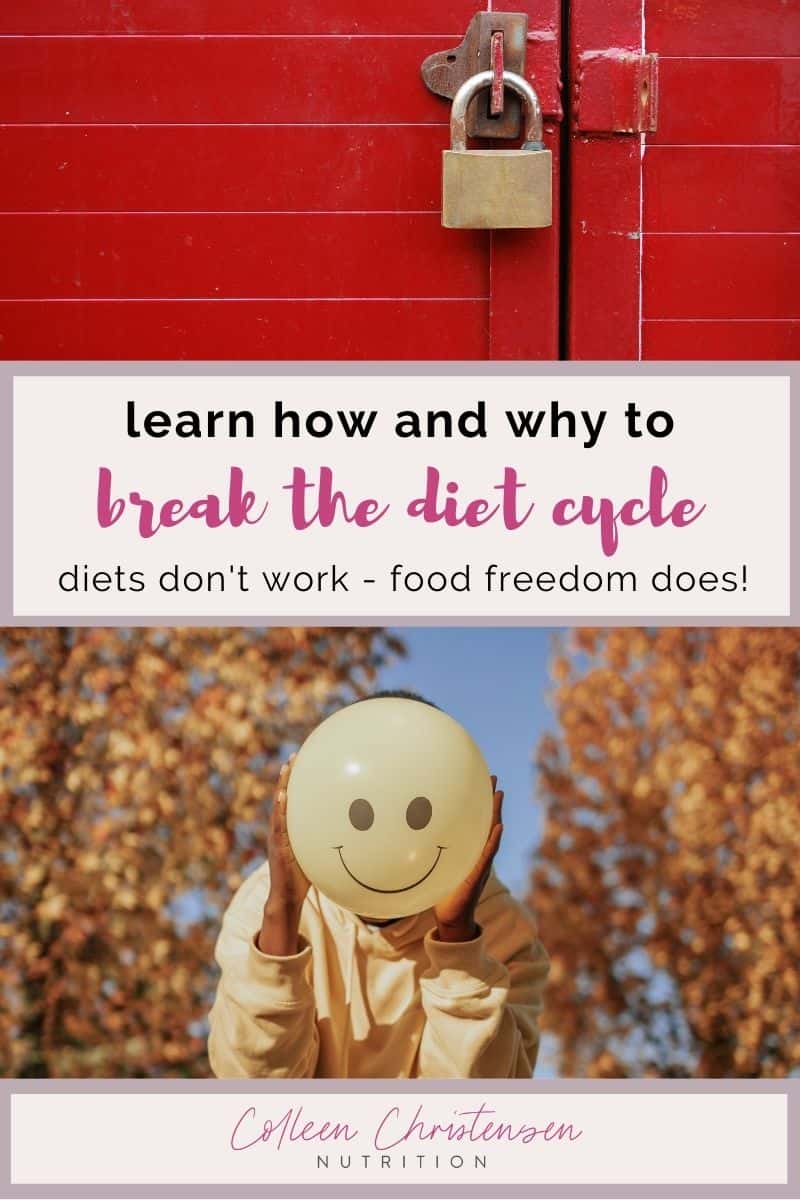
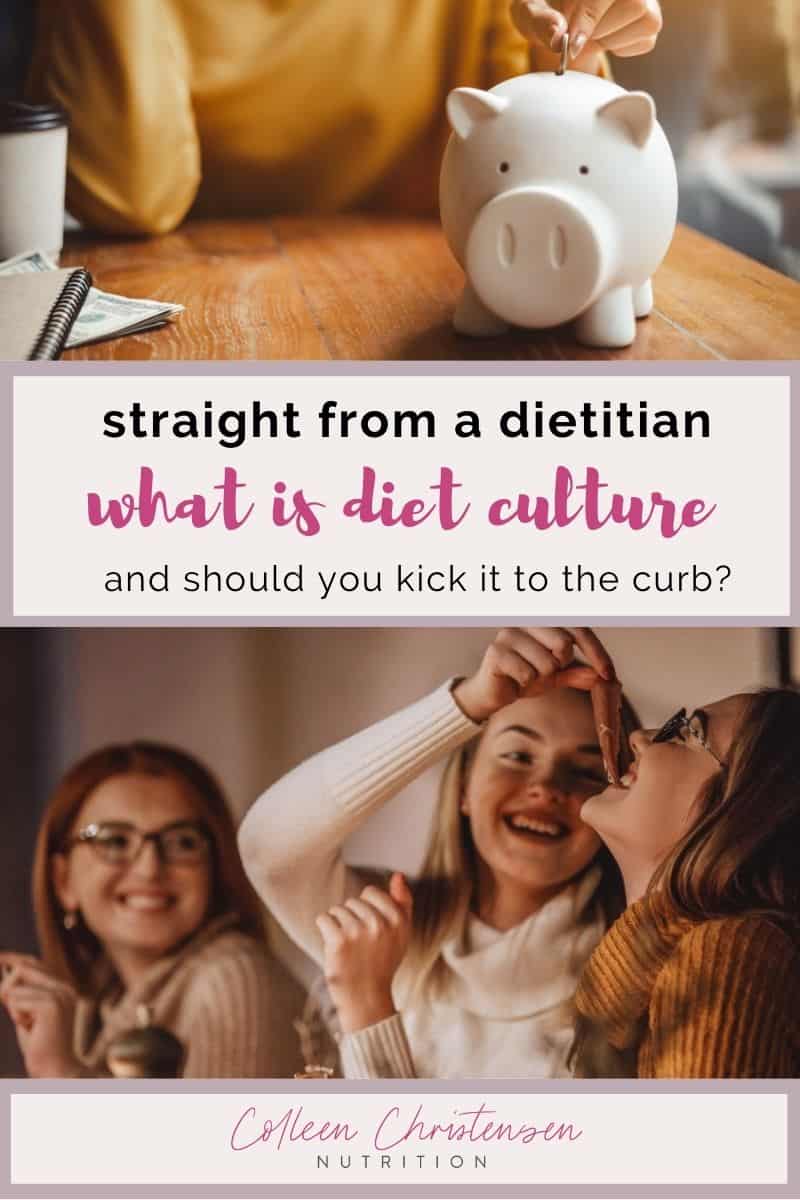



Leave a Reply